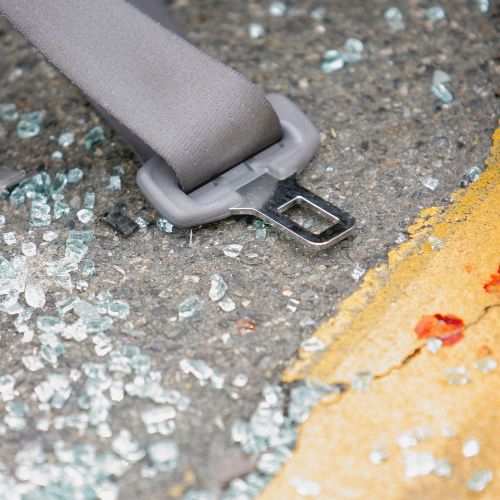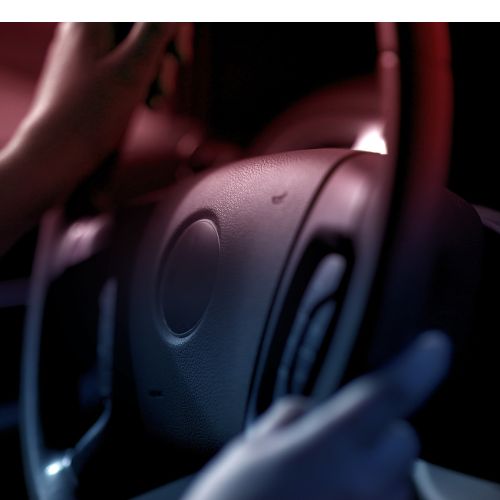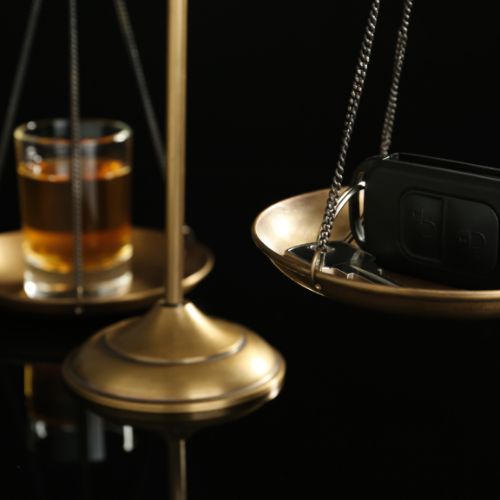
Reading Time: 8 minutes
The dangers and consequences of drinking and driving (DUI, or driving under the influence) are well-documented. Yet many people still choose to get behind the wheel after consuming alcohol. In this article, we’ll discuss the risks associated with DUI. We’ll also explore how Nationwide Auto Transportation provides a safe and responsible alternative for transporting vehicles.
What is a DUI and What Happens When You Get a DUI

When a loved one drinks too much
When trying to convince a friend not to drive after drinking, you should try explaining the sobering facts:
- DUI arrests are all too common, and many are under the influence of alcohol at college parties and other social events.
- People driving under the influence of alcohol are not only putting their lives at risk but also endangering others on the road.
What happens when you get a DUI?
Drunk driving is a significant problem in the United States, with alcohol being a leading cause of traffic fatalities. According to the National Highway Traffic Safety Administration (NHTSA), 28 people die in the U.S. due to drinking and driving. However, drunk driving fatalities have decreased by 44% since 1985. More good news is that the percentage of traffic fatalities involving alcohol impairment has decreased by almost 31% since 1985. This can be attributed in part to:
- Efforts by citizen activist groups like Mothers Against Drunk Driving (MADD);
- Public agencies like the NHTSA and CDC;
- The rise of technology (such as ridesharing companies like Uber and Lyft, and student auto transportation) has also made getting a sober ride more accessible.
Don’t Drink and Drive: Risks of DUI include accidents, injuries, and fatalities

While most drivers understand the grave seriousness of drunk driving and its consequences, a surprising number of people still admit to driving under the influence of alcohol. The Traffic Injury Research Foundation’s 2021 report and survey reveal that 65% of U.S. drivers surveyed were “very or extremely concerned” about drunk driving. However, 5% of drivers reported they drove when they thought they were over the legal BAC limit in 2021, the highest percentage since 2015.
Most drivers understand the grave seriousness of drunk driving and its consequences.
Yet, many people still admit to driving under the influence of alcohol.
The Traffic Injury Research Foundation’s 2021 report and survey reveal that 65% of U.S. drivers surveyed were “very or extremely concerned” about drunk driving. However, 5% of drivers reported they drove when they thought they were over the legal BAC limit in 2021. That’s the highest percentage since 2015.
Even if you think you can drive while drunk, remember that impaired driving dramatically increases the likelihood of a crash.
The only effective way to reduce your blood alcohol concentration (BAC) is to wait until your body has metabolized the alcohol. Driving under the influence of alcohol or drugs is never a good idea.
However, what do you do when you don’t want to drive? The first step is knowing how to prepare your car for shipping. Next, why not give us a call to see how Nationwide Auto Transportation can assist?
Legal and Financial Consequences: The High Price of DUI

If you’re convicted of DUI, the consequences can be severe.
- Fines,
- license suspension,
- and potential jail time
…are just a few of the legal repercussions you might face. In addition, the financial consequences of drinking and driving include increased insurance rates, legal fees, and potential job loss.
What happens when you get a DUI?
If you’re convicted of DUI, the consequences can be severe. Fines, license suspension, and potential jail time are just a few of the legal repercussions you might face. In addition, the financial consequences of drinking and driving include increased insurance rates, legal fees, and potential job loss.
- John, a 28-year-old marketing professional, decided to drive home after a night out with friends at a local bar. He was pulled over and subsequently charged with a DUI. As a result, he faced $10,000 in fines and legal fees. Additionally, he faced a six-month license suspension, and had to attend court-ordered alcohol education classes. His car insurance rates also increased by 75%, and his employer decided to let him go due to the negative publicity surrounding his arrest.
- Sarah faced a $7,500 fine. She also received a one-year license suspension, and the expense of installing an ignition interlock device in her car. In addition, her car insurance rates doubled, making it even more difficult for her to make ends meet.
- Michael, a college student, attended a party with his friends and had a few drinks. Deciding to drive home afterwards, he tragically struck and killed a pedestrian. Charged with vehicular manslaughter, Michael faced up to 10 years in prison, a permanent license revocation, and $25,000 in fines. The victim’s family also filed a civil lawsuit against him, seeking damages for their loss. The emotional, legal, and financial burden of this one decision will follow Michael for the rest of his life.
Each of these individuals faced significant legal and financial consequences due to their decision to drink and drive. The high price of DUI serves as a sobering reminder of the importance of making responsible choices when it comes to alcohol consumption and vehicle operation.
How Much Can You Drink and Drive? The Answer is Simple: Don’t
You might wonder, “how much can I drink and still drive?” The truth is, even small amounts of alcohol can impair your driving ability, and there’s no safe limit. The best course of action is to avoid drink driving altogether and seek alternative transportation options when necessary.

Alcohol is a central nervous system depressant that reduces brain function, impairing critical abilities such as thinking, as thinking, reasoning, and muscle coordination.
When a person consumes alcohol, it is rapidly absorbed through the walls of the stomach and small intestine, then accumulates in the bloodstream until metabolized by the liver.
Alcohol consumption can significantly impair an individual’s ability to operate a motor vehicle safely. The risk of causing a potentially fatal accident increases as the blood alcohol concentration (BAC) level increases. The higher the BAC, higher the risk of causing a potentially fatal accident. Understanding the effects of alcohol on driving ability and the legal limits in place ensures the safety of everyone on the road.
Alcohol is a central nervous system depressant. It reduces brain function, impairing critical abilities such as thinking, reasoning, and muscle coordination.
Alcohol is rapidly absorbed through the walls of the stomach and small intestine. It accumulates in the bloodstream until metabolized by the liver.
As the BAC level rises, the negative effects on an individual’s central nervous system increase. This results in diminished motor skills, slowed reaction time, and compromised decision-making abilities. These impairments can lead to hazardous driving conditions and a higher likelihood of accidents.
What is a high BAC for a DUI?

All 50 states, the District of Columbia, and Puerto Rico have made it illegal to drive with a BAC of .08 grams of alcohol per deciliter (g/dL) or higher. Utah is the exception, as the state has a lower BAC limit of .05 g/dL. These limits have been established to curb the exponentially increasing crash risk associated with higher BAC levels.
All 50 states, the District of Columbia, and Puerto Rico have made it illegal to drive with a BAC of .08 grams of alcohol per deciliter (g/dL) or higher. Utah is the exception, as the state has a lower BAC limit of .05 g/dL. These limits have been established to curb the exponentially increasing crash risk associated with higher BAC levels.
However, it is important to note that even small amounts of alcohol can affect a person’s driving ability. In 2020, there were 2,041 fatalities in alcohol-related crashes where a driver had a BAC between .01 to .07 g/dL. This data underscores the importance of exercising caution and responsibility when it comes to alcohol consumption and driving.
DUI Frequently Asked Questions: Driving Under the Influence
Q: What happens when you get a DUI?
A: You may face several legal consequences, including arrest, fines, license suspension, and potential jail time when you get a DUI (Driving Under the Influence). You may also face increased car insurance rates, legal fees, and potential job loss. The specific consequences vary depending on your location and whether it’s a first-time offense or a repeated violation.
Q: What is a high BAC for a DUI?
A: A high Blood Alcohol Concentration (BAC) for a DUI is typically anything above the legal limit of 0.08 g/dL in most states. However, Utah has a lower limit of 0.05 g/dL. The higher your BAC, the more severe the penalties may be.
Q: What is a DUI charge?
A: A DUI charge is a legal offense that occurs when an individual operates a motor vehicle while under the influence of alcohol or drugs. This charge is based on the driver’s impaired ability to operate a vehicle safely due to alcohol or drug consumption.
Q: How long does a DUI stay on your record?
A: The duration a DUI stays on your record varies by state and jurisdiction. Generally, a DUI conviction remains on your criminal record permanently. However, the time it stays on your driving record can range from 5 to 10 years, or even longer in some cases.
Q: How much is a DUI?
A: The cost of a DUI varies depending on factors such as location, legal representation, and the severity of the offense. In general, a first-time DUI offense can cost between $10,000 and $15,000, including fines, legal fees, increased insurance premiums, and other related expenses.
Q: What is the penalty for a DUI in California?
A: In California, the penalties for a DUI can include fines, license suspension, mandatory alcohol education programs, and potential jail time.
Fines can range from $390 to $1,000, a license suspension of six months, and 48 hours to six months of jail time for a first-time DUI offense. Penalties increase for subsequent offenses and may include a longer license suspension, more substantial fines, and longer jail time.
Q: How long is your license suspended for a DUI?
A: The length of license suspension for a DUI varies by state and the number of offenses. For a first-time DUI offense, the suspension can range from a few months to a year. The suspension period typically increases for subsequent offenses, and in some cases, a license may be permanently revoked.
Q: How long does a DUI stay on your driving record?
A: The length of time a DUI stays on your driving record varies by state. In general, a DUI conviction can remain on your driving record for 5 to 10 years or longer, depending on the jurisdiction.
Q: How much is a DUI fine? A: DUI fines can vary depending on the state, the number of offenses, and the severity of the incident. For a first-time DUI offense, fines can range from a few hundred dollars to several thousand dollars. Fines typically increase for subsequent offenses and may be accompanied by additional penalties, such as jail time and license suspension.
Nationwide Auto Transportation: A Safe and Responsible Alternative
Don’t risk driving under the influence, especially when moving a car across the country. Rather consider using Nationwide Auto Transportation. Our professional vehicle transportation services ensure safety, reliability, and peace of mind, eliminating the risks associated with DUI.
Additional Benefits of Nationwide Auto Transportation
Nationwide Auto Transportation will help you avoid the consequences of drinking and driving but also enjoy additional benefits, such as:
- Door-to-door service: We pick up and deliver your vehicle right to your desired location, offering a convenient and hassle-free experience.
- Transportation options: We provide both open and enclosed carriers to accommodate your preferences and protect your vehicle.
- Nationwide coverage: Our extensive network of carriers allows us to offer vehicle transportation services across the United States.
Choose Safety and Responsibility with Nationwide Auto Transportation
Driving under the influence of alcohol is a dangerous and costly mistake. The question is not how to get out of a DUI, but how to avoid the situation altogether. Focus on prevention by choosing safe and responsible transportation alternatives like Nationwide Auto Transportation.
With our professional, reliable, and convenient services, you can ensure that your vehicle arrives at your destination safely and responsibly.

Find out the average cost to ship your car per mile using our calculator…



